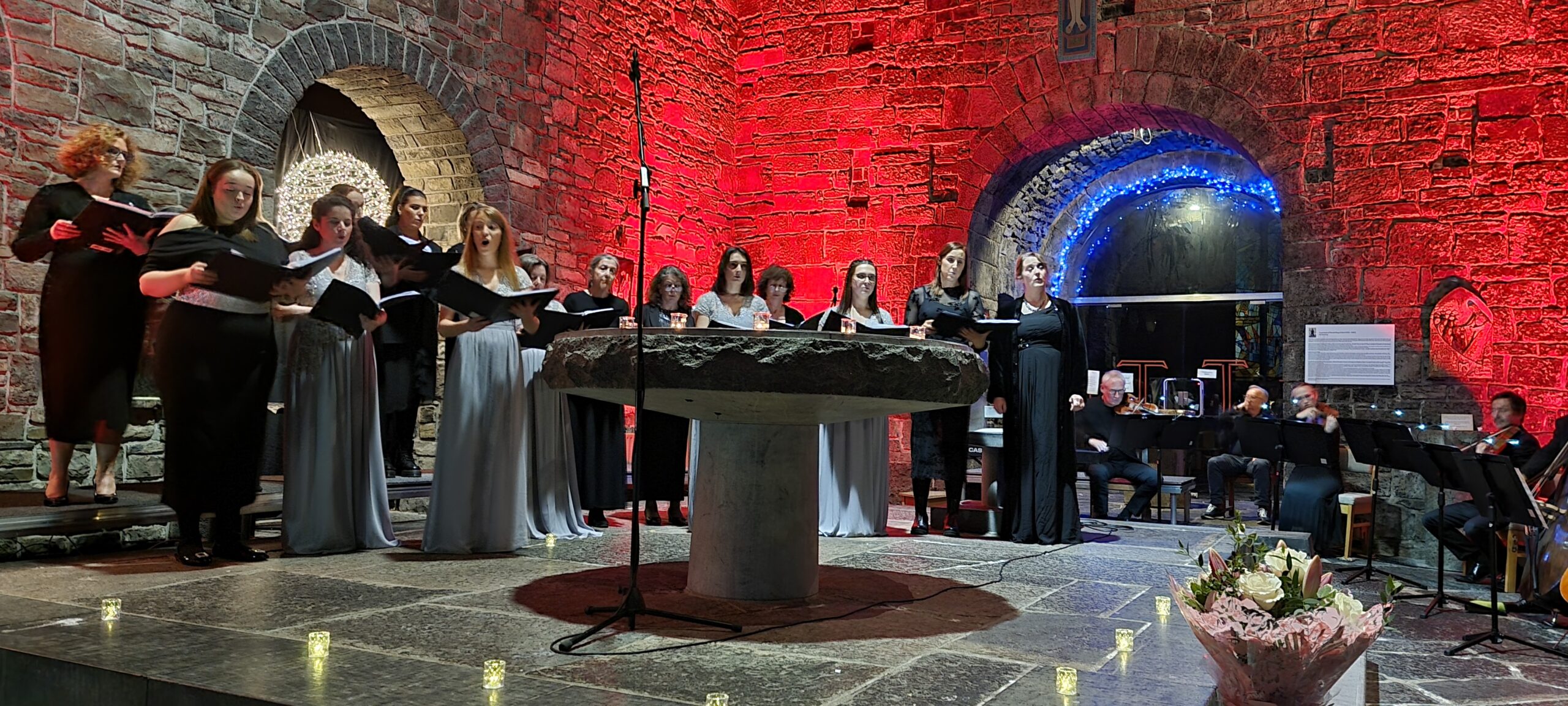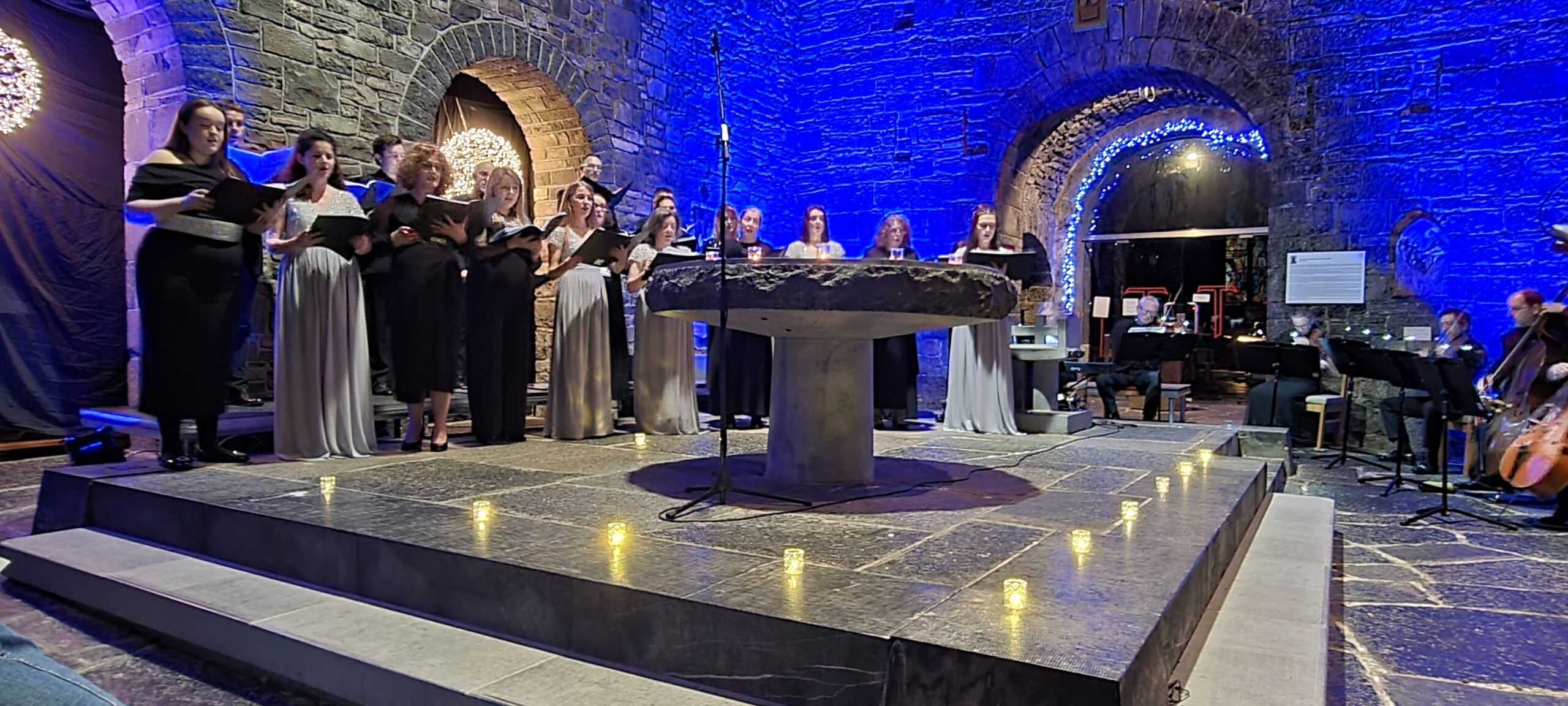Welcome / Fáilte Romhat!
The Franciscan Abbey in Multyfarnham was founded in 1268 and continues to be an active centre of Franciscan mission in Ireland. The only Franciscan Abbey in Ireland still standing on the footprint of its original foundation, the Franciscan fraternity continues its commitment of service from this special place.
Portiuncula Indulgence – Feast of Our Lady, Queen of the Angels
Headlines
No Results Found
The page you requested could not be found. Try refining your search, or use the navigation above to locate the post.
Latest Updates
No Results Found
The page you requested could not be found. Try refining your search, or use the navigation above to locate the post.
News
No Results Found
The page you requested could not be found. Try refining your search, or use the navigation above to locate the post.
From the desk of Fr Kieran OFM
Your health is your wealth – but of which ‘health’ do we speak?
Some proverbs are universally known, understood, and accepted for a depth of insight that their brevity belies! And surely this phrase, “your health is your wealth” qualifies as being in this category.
In his reflection, Fr Kieran is not thinking so much about health in the ordinarily understood sense of that phrase, i.e., our physical and mental wellbeing. No. He takes this to another critical area of our lives, or more importantly, our lives in God, when he takes us through a reflection on spiritual health.
Most of us tend to care for our physical and mental health but do we think enough (and do enough) for our spiritual health? We spend thousands on physical health, whether in healthy living, staying fit, dieting, etc. Why – because it is important and we want to live long.
But what about our spiritual health? Don’t we want to live with God for all eternity?
Read Kieran’s reflection on this key topic!
The Forgotten Father
In these days of equality of the sexes, one might assume that, as we celebrate the feast of Our Lady as “Mother of the Church” then so too, should we have a feast day of “Father of the Church?”
At least, that is the question that underpins Fr Kieran’s reflection. However, while it is not a question that we have heard asked, Kieran posits the question so as to encourage us to reflect on God as Father, Son, and Holy Spirit. With the impending feast of Trinity Sunday around the corner, it is probably no coincidence that we should be thinking about it at this time.
As Catholics, we know that the Trinity – Father, Son, and Holy Spirit as one – is one of the mysteries of our faith. As Kieran says, there was a time when the Holy Spirit was the ‘forgotten’ one of the Trinity but that has changed. Is it now the case that in fact, it is God the Father who may be the forgotten one of the Trinity?
While Kieran therefore suggests that a feast for Father of the Church would not be completely out of place, perhaps it is we who can sometimes forget the God the Father that was ever-present in the words of Jesus.
A vocation to friendship
Albert Camus was a French philosopher (and many other things). He was the recipient of the 1957 Nobel Prize in Literature at the age of 44, being the second-youngest recipient in the history of the prize. He wrote, on friendship: “Don’t walk in front of me, I may not follow, don’t walk behind me, I may not lead. Walk beside me, just be my friend.”
“Friend” and, “friendship” are words that we use freely. Facebook commoditised the word such that, now we can all now have hundreds (maybe even thousands!) of “friends” and not even know most of them!
Albert Camus understood friendship in a very different way to Mark Zuckerberg and implies an equality that is central to what it is to be a friend. Fr Kieran, in his reflection that has been inspired by the Gospel on Good Shepherd Sunday, looks at the vocation of friendship, the call to be a friend. It is more than knowing, it is something intimate in its depth. Indeed, Aristotle said: “What is a friend? A single soul dwelling in two bodies.” And Jesus told his disciples that, “No longer do I call you servants … but I have called you friends.“
In his earlier reflection, Kieran wrote of how there is a difference between what we are called to do and who we are called to be and it is in the latter that we find vocation. How true indeed, therefore, is it that friendship must be called a vocation?
An Evening of Beautiful Music in the Friary
Some buildings lend themselves, naturally, to having good acoustics and the Friary church can count itself among those. And when music is played and sung here, the tones of the voices and of the played music combine with the very stones themselves to deliver a sound that cannot be replicated in any other place. In every sense, it is a unique experience, both for the artists and for their audience.

And so it was last Sunday evening when The Lynn Singers from Mullingar, the Irish Concert Orchestra Quintet, and Vocative, a small six-man group of singers visited us to perform their Winter Concert. An audience of just over 300 people were treated to a beautiful evening of perfect singing, and magnificent and uplifting music. The first half of the evening was given over to The Lynn Singers, Vocative and the ICO Quintet performing “Magnificat” from St Luke’s Gospel (LK 1:46-55). Few of us can say that we have not heard the amazing words of Mary’s prayerful response to the Angel sung. However, Sunday’s performance was one with which few would be familiar. In an arrangement by Kim André Arnesen, a young Norwegian classical composer from Trondheim in that country, the performance of “Magnificat” was quite simply, beautiful. How such a sound could be obtained from so few voices is a mystery and the individual performances were so perfect, that the soprano voices were like the voices of angels filling the Friary church. This arrangement was sung in Latin and while this might, at first, risk disconnecting the audience from the magnificence of the words, having the Latin and English, side-by-side on the back page of the accompanying programme, allowed us to engage with the prayer. A spectacular performance, with Musical Director, Dervilla Conlon skillfully encouraging every note and pause to deliver an impeccable performance.
This was followed by the ICO Quintet with a performance of three pieces, two by Arthur Duff (“Windy Gap” and, “Meath Pastoral”) before concluding with McAnanty’s Reel. Kenneth Rice led the quintet in a spirited uplifting, toe-tapping, rendition of this well-known reel and at times, it seemed that Robin Panter on Viola was going to step forward, put his viola down, and break into the reel itself. Joyful!

The evening concluded with three songs, again from the The Lynn Singers, with Vocative and the ICO. First, we had Moonset, by Don McDonald, a thoughtful piece, followed by Blackbird, a Lennon and McCartney icon to an arrangement by Kenneth Rice of the ICO Quintet, and the evening finished with a song that seldom fails to bring to mind old friends, the Parting Glass, again to a Kenneth Rice arrangement with Audrey Snyder.
Evenings such as this are as rare as they are special, and it will take a few weeks for the last echoes of music from the evening to fade away. It is evenings such as this that remind us of why the Friary church in Multyfarnham has a special place in the hearts of all of us.
T. Gerard Bennett
